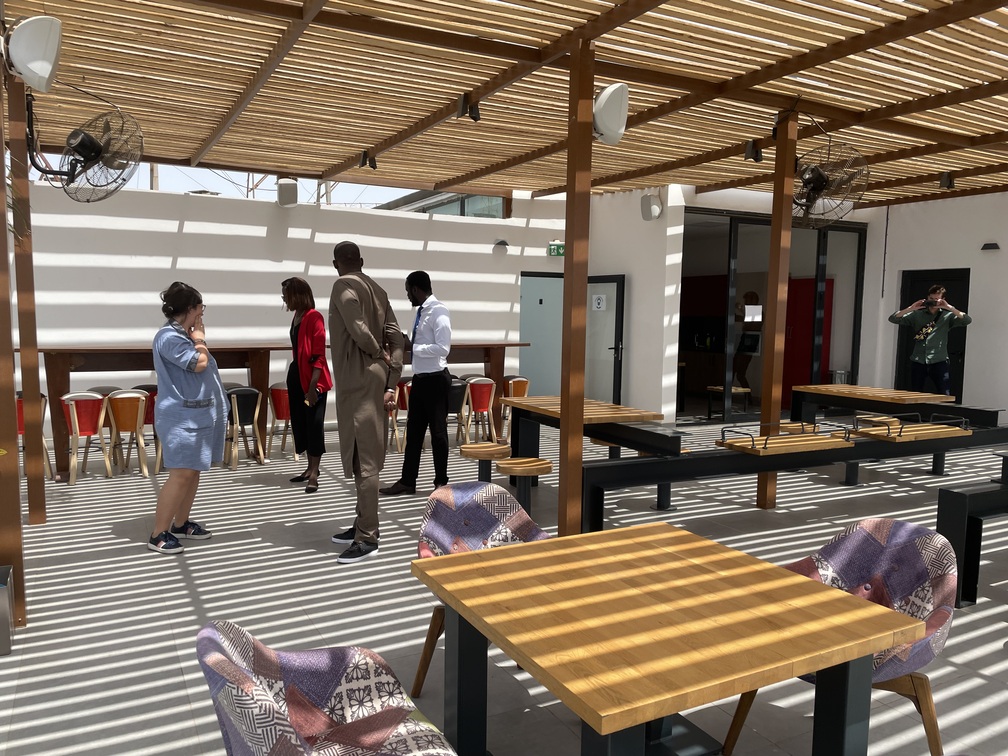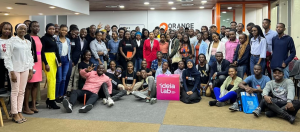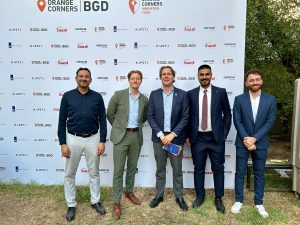This innovation that you see here now, is something we would like to continue in the future
Last month, OCHQ team members Kars and Benthe paid a visit to a factory in Pikine, Senegal of Elimane Forster, a young Senegalese entrepreneur who started a business with just a bag of chillies worth 12,000 CFA. Now, he runs the successful food enterprise solution startup. Abel Food sells natural and local products, transforming plants and agricultural produce into tea, herbs and substitute foods with powerful medicinal properties. All products are packaged, labeled and distributed from his warehouse and factory. Kars interviewed Elimane to get to know more about his startup.
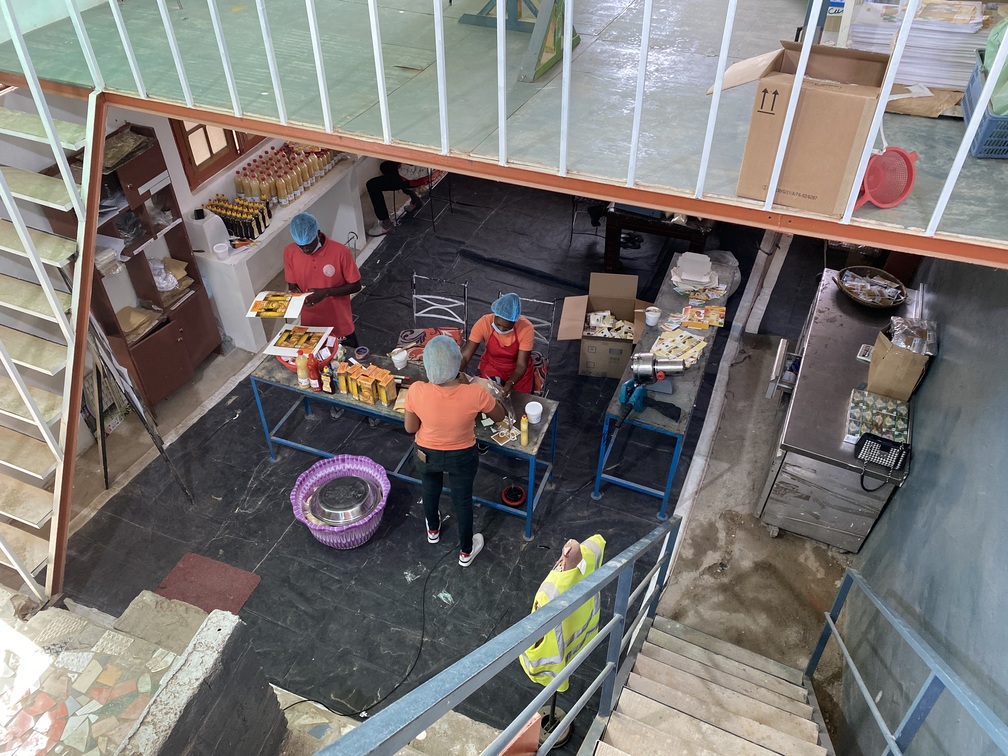
The programme has allowed us to better understand our market segment, due to quantitative and qualitative data we gathered.
Tell us, how did you start your startup?
“The official family business started in 2006 in Gabon, before it moved to Senegal in 2010. The brand of Abel Food and the range of products we offer is created here. The official launch on the market was in the beginning of 2019. Now we are a team of 10 permanent staff, but we also work indirectly with dozens of producer operators who help us with delivering the products. We offer fresh and healthy products to our clients, displayed in a professional way.”
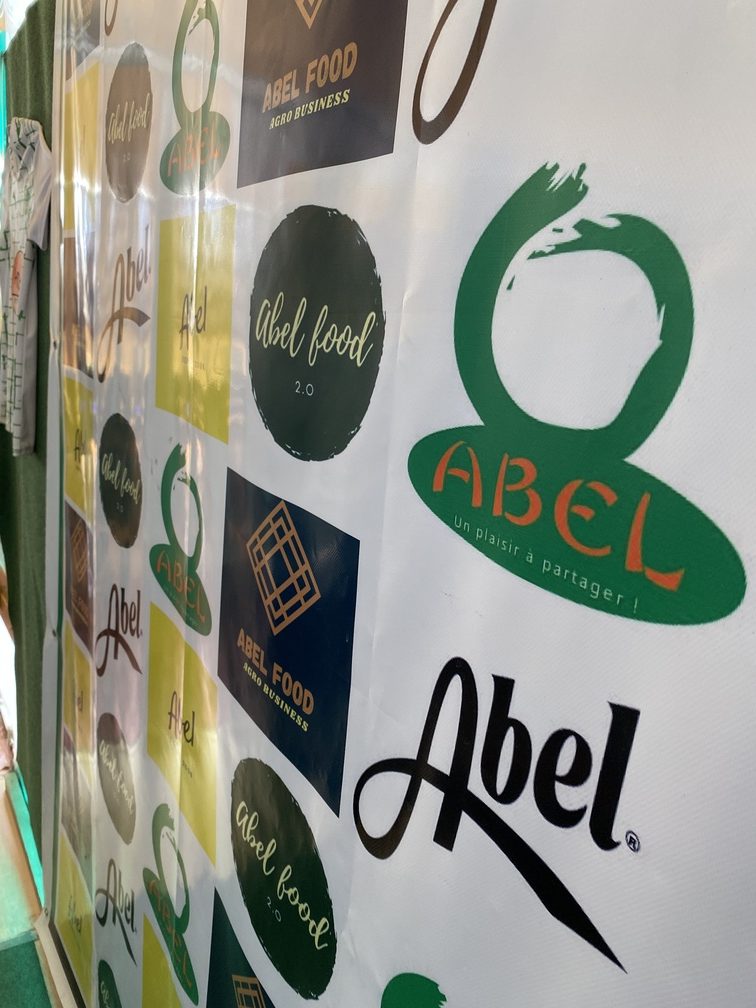
Understand the sector you want to enter. What are you going to venture into? Starting a business is not just a gamble, it is a real challenge where you need to work on each day.
How did the Orange Corners programme improve your startup?
“We were the winners of our cohort in 2021. The programme has enriched the management of our startup. Looking at what we had to offer before the programme to where we want to be, I have seen real improvement. The programme has allowed us to better understand our market segment, due to quantitative and qualitative data we gathered. Today, we better understand our market size, our sales force and as well as our communication strategies. But the programme also allowed us to see how to further develop our startup. For example, today’s techniques like digital marketing and data analytics, allows us to assess and diagnose which articles sell well or not. That is very useful, as it improves the efficiency of our startup. Today, our revenue circles around 60 et 100 million franc. In 2019, before the programme, this number was 33 million.
The discipline in educating yourself gets you far, especially if you want to launch and further develop a startup.
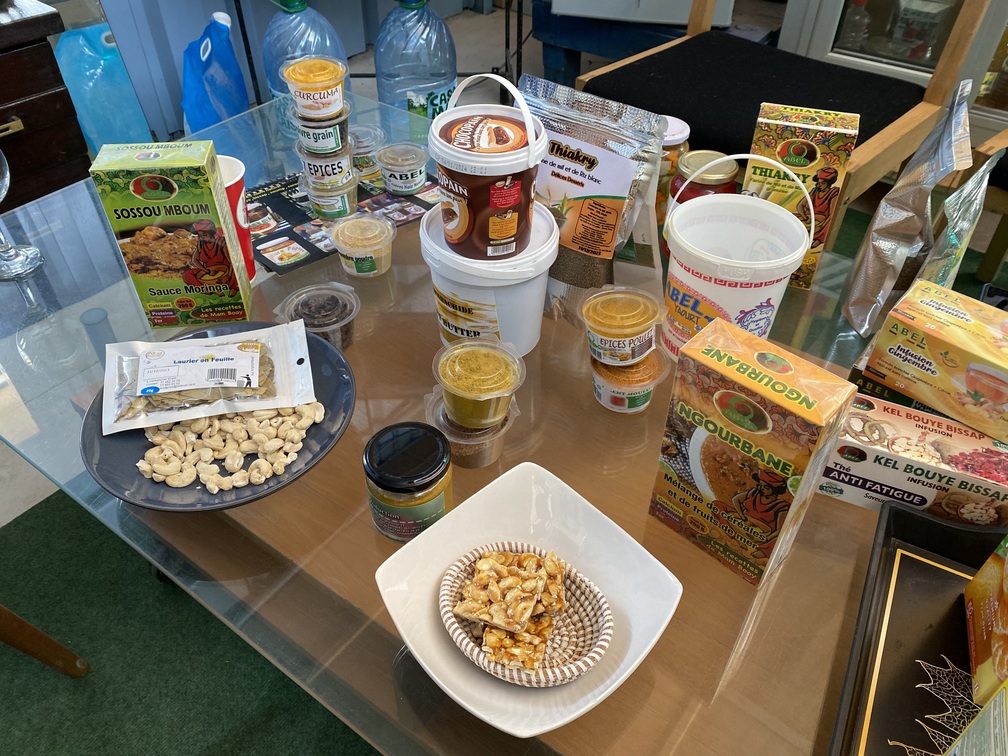
This year, we have also won the OCIF fund, which is great. The fund hasn’t been allocated yet, but we will be able to receive 20 to 30 thousands euros, partially as a grant and partially as a loan. With this money, we would like to improve our startup and reinforce our legal framework. This would help us to solidify what we have done in the past years, helping us to increase our distribution in the future. Because now, we receive so many orders that we have more demand than what we can offer. We would like to change this and offer more than needed. So with the fund we would be able to correct that and increase our production and enhance our distribution strategy. If we have ticked off that target, we hope to extend the range of products and improve our market position. If we manage to do that, we will have a certain profitability which will allow the company to grow in the next five-ten years, so that our permanent staff will go up to about twenty permanent jobs. And this means, creating more production value and wealth for the African continent.”
People didn’t necessarily accept our local products immediately and were reluctant to buy them.
What are the biggest business challenges according to you, for young Senegalese entrepreneurs?
“It is a question of being recognised. When I was starting my business, nobody was really interested. I bought a bag of chilies worth 12,000 francs and was trying to create products on the market, I took the bottles of water which I pasteurised. These bottles I filled with a puree I made through grounding the bag of chilies. Then I added anything that is natural, like ginger and lemon, and then we closed it and try to sell it. That is how we started back in the days. But people didn’t necessarily accept these local products immediately and were reluctant to buy them. Sometimes I think it was a matter of trust. Because the quality was there, what we offer is good for one’s health, but people didn’t trust our products yet. Therefore, it was necessary to create a brand, Abel Food, that is respected and has a certain notoriety. Creating our brand, changed everything.
Every time I would go to the supermarkets and showed them my products, they asked me if I had any other products for offer. Next time, I would bring another product and I immediately saw an increase in the demands of other products. It pushed the team to think about how to bring both quantity and quality to the market. We experienced trial and error, it did not always work. To date, we have 66 products that have been marketed, packaged and labeled with our brand.”
The Orange Corners programme has allowed us to better understand our market segment, due to quantitative and qualitative data we gathered.
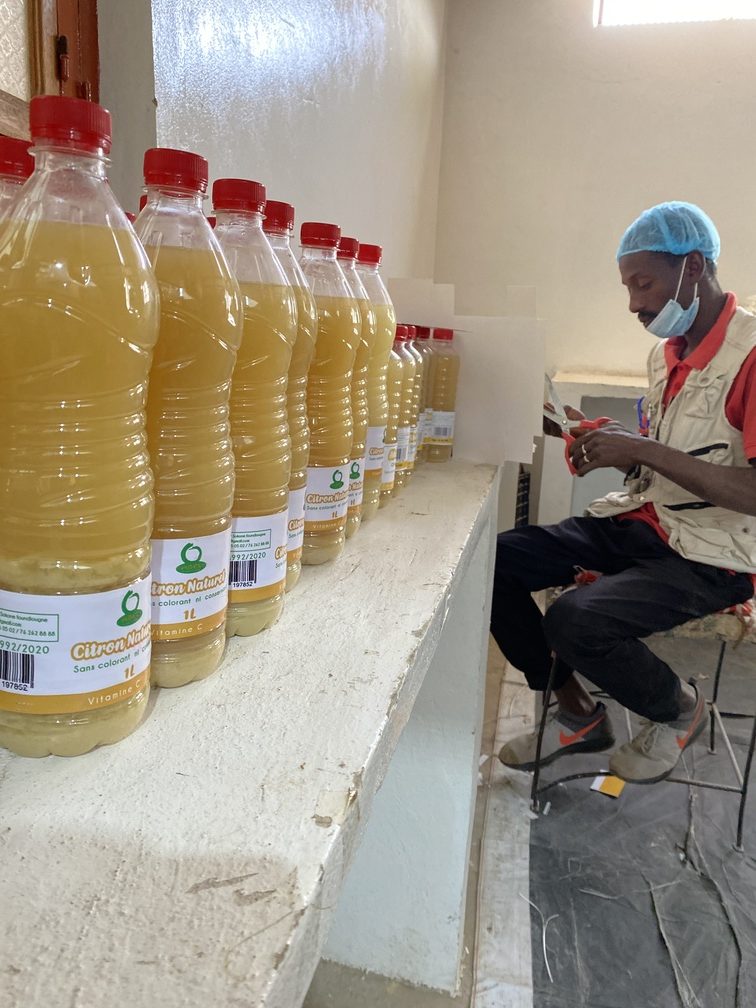
What advice would you give other entrepreneurs?
“Young people nowadays are always in a hurry. They have to go to study. They want have a job. When you are going to start a business, they invest their time in a sector when they don’t understand the business environment. First, you have to know your business. You have to understand the sector you want to enter. What are you going to venture into? Starting a business is not just a gamble, it is a real challenge where you need to work on each day. To understand all of this, you have to understand the market in which you operate. Otherwise you are forced to disappear after one year, because you haven’t done your due diligence and haven’t educated yourself enough. Try not to be in a hurry when it comes to your business, as success doesn’t happen overnight.”
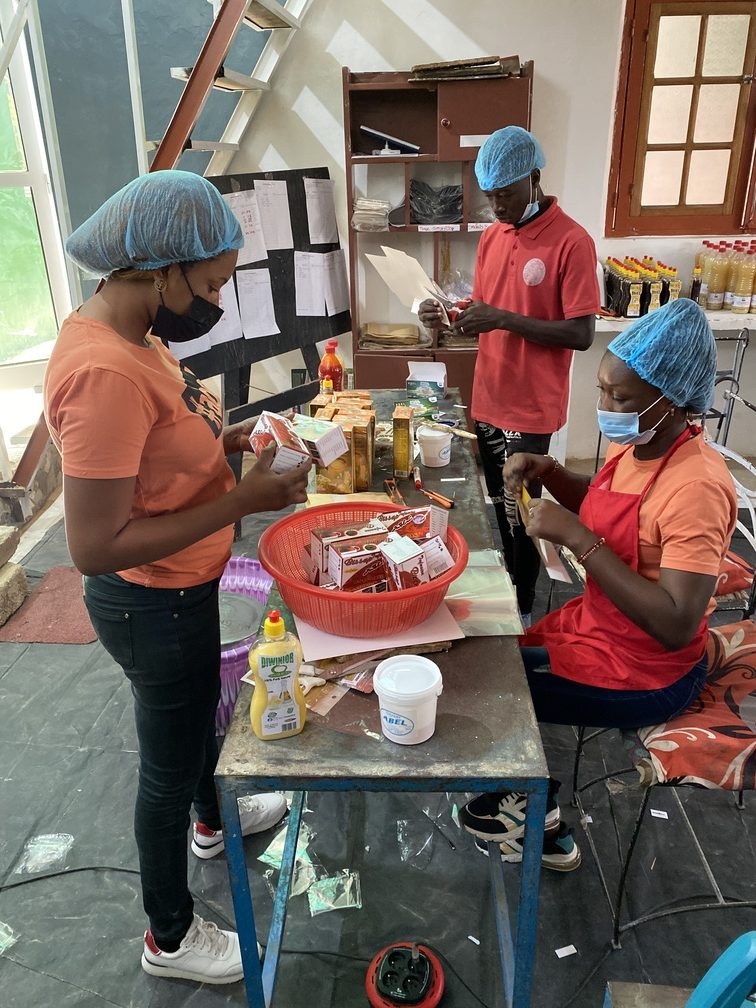
How did your startup gain success, you would say?
“Looking at my own business, I have to admit that I didn’t even earn a salary for several years. I would wear the same clothes every day. I didn’t go out on weekends because I was not able to spend 10,000 CFA for admission. I wanted to focus on my startup. The typical stories of showing off that you are a CEO, that was only something to fantasize about for me. I would say that I’m a hard worker, I have an idea in mind. And this idea, I want to implement it and see if it works.
I will never give up on my startup ideas. Everything I start, I’m sure I will finish it. But if I don’t believe in it, I don’t do it. Dare, educate yourself, and have a certain discipline too. The discipline in educating yourself gets you far, especially if you want to launch and further develop a startup. My preferred strategy is to do research and development, which made me take up good practices. So I researched companies in Europe, for example, to understand the culture of their business and see how I could put them into practice in my company. It’s this discipline and education that really helped me.
First and foremost, thus even before launching my startup, I wanted to help women. Some women stopped studying to stay in the kitchen and prepare food, which would take them about 6 hours, almost 8 hours, a whole day to prepare. And I thought, how to make ready-to-eat prepared meals, transiting slow food to healthy fast food so women could leave the kitchen? So that is partly what we are doing today, preparing and mixing ingredients for dishes before the cooking starts. For example, our boum boum powder reduces the time of cooking from 4 hours to 20 minutes, creating tasty and fast food which gives females the chance to go out and work. This innovation has allowed women to regain and enjoy a certain level of independence. And this innovation that you see here now, is something we would like to continue in the future.”
Try not to be in a hurry when it comes to your business, as success doesn’t happen overnight
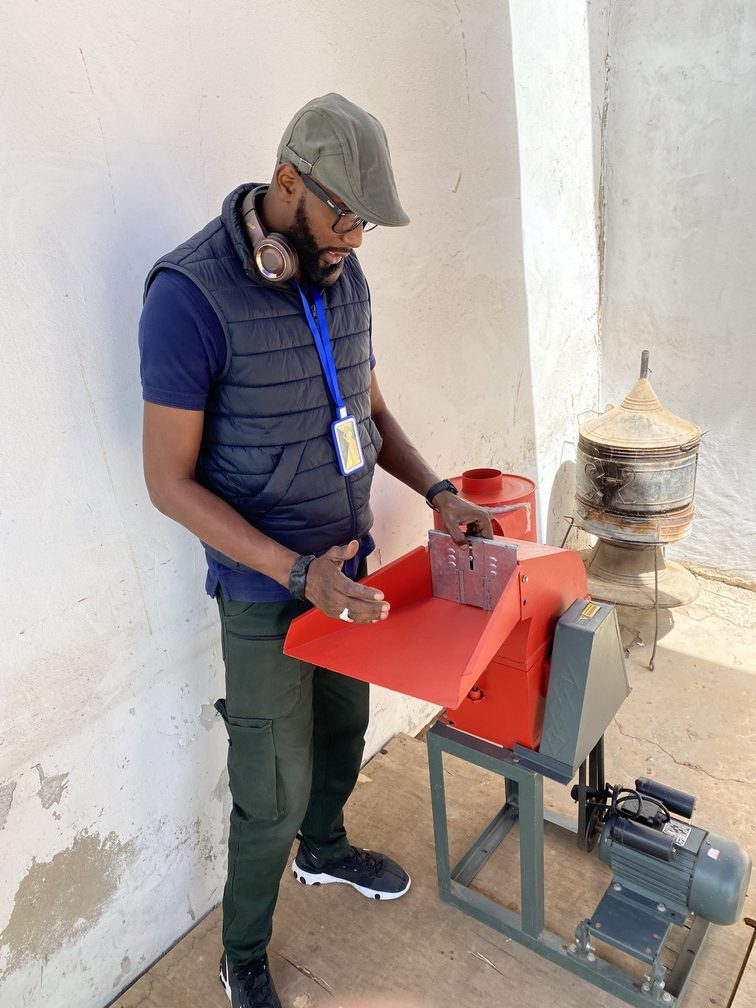
Orange Corners Innovation Fund (OCIF) provides fund managers with capital to invest in early-stage startups. It is an additional programme to the Orange Corners incubation programmes. It aims to stimulate innovation and improve access to finance for starting entrepreneurs in Africa, the Middle East and Southeast Asia.

